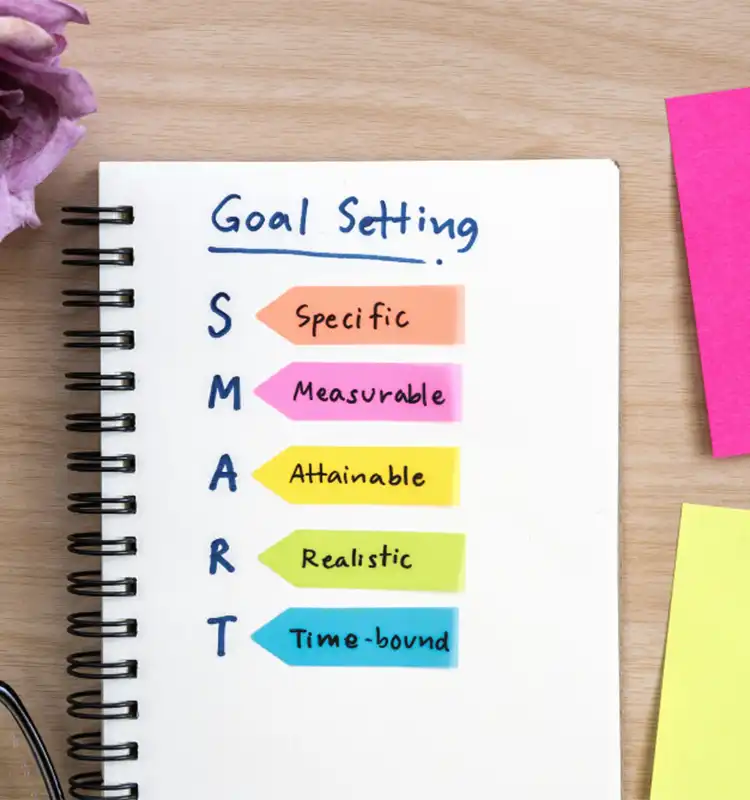Unlocking Your Full Potential: 7 Habits for Lasting Self-Improvement

Introduction
In a world buzzing with distractions and quick fixes, the quest for lasting self-improvement can seem like an elusive goal. However, the road to unlocking your full potential doesn’t have to be shrouded in mystery or complexity. The secret lies in adopting habits that promote continuous growth and enrich your life in meaningful ways.
Here are seven tried-and-tested habits that can pave the way for long-term self-improvement and help you unlock your full potential.
- Cultivate a Growth Mindset
The first habit that can dramatically impact your ability for self-improvement is the cultivation of a growth mindset. A growth mindset is the belief that abilities can be developed and that failure is not a permanent condition. This perspective allows you to view challenges as opportunities for growth rather than as threats to your identity.
Action Steps:
- Remind yourself that intelligence and skills are not fixed attributes.
- Use constructive criticism as a tool for improvement.
- View setbacks as learning experiences, not failures.
- Prioritize Your Health
Physical well-being has a profound impact on your capacity for lasting self-improvement. A healthy body supports a healthy mind, making it easier for you to focus on your goals and overcome challenges.
Action Steps:
- Adopt a balanced diet rich in nutrients.
- Exercise regularly to keep your body and mind active.
- Prioritize sleep to allow your body and mind to recover.
- Set SMART Goals
Specific, Measurable, Achievable, Relevant, and Time-bound (SMART) goals provide a roadmap to help you reach your full potential.
Action Steps:
- Be specific about what you want to achieve.
- Make your goals measurable so you can track your progress.
- Keep your goals achievable yet challenging to maintain motivation.
- Develop Resilience
Building resilience allows you to bounce back from setbacks and keep moving forward on your path to self-improvement.
Action Steps:
- Practice mindfulness to help regulate emotions.
- Build a support network of friends and family to lean on in tough times.
- Focus on what you can control and let go of what you can’t.
- Learn Continuously
The quest for lasting self-improvement is an ongoing journey. Adopt the habit of lifelong learning to stay adaptable and relevant.
Action Steps:
- Dedicate time to reading and research.
- Take courses that can further develop your skills.
- Listen to podcasts or watch educational videos on topics that interest you.
- Practice Gratitude
Gratitude not only improves your mental health but also provides you with a more positive outlook, making it easier to tackle the challenges that come with self-improvement.
Action Steps:
- Keep a gratitude journal to remind yourself of the good things in life.
- Express thanks to people who have made a positive impact on your life.
- Practice mindfulness to stay focused on the present moment.
- Consistency is Key
Lastly, none of the above habits will bring about lasting self-improvement unless applied consistently.
Action Steps:
- Set aside specific times for your lasting self-improvement activities.
- Use tools like planners or apps to track your habits.
- Reward yourself for sticking to your routines, but don’t punish yourself for occasional slips.
Conclusion
Unlocking your full potential requires dedication, effort, and a willingness to step out of your comfort zone. By incorporating these seven habits into your daily routine, you set yourself on a path of lasting self-improvement. Remember, the journey to becoming the best version of yourself is a marathon, not a sprint. Be patient, stay committed, and watch as your life transforms in beautiful and unexpected ways.

Table of Contents
Understanding the Psychology of Potential: The Foundation for Growth to Lasting Self-İmprovement
When it comes to unlocking your full potential, understanding the underlying psychology is crucial. Knowing how your mind operates enables you to tap into latent capabilities, overcome obstacles, and harness your talents effectively. Essentially, the way you perceive your own potential can either propel you forward or hold you back. Let’s dive into some key psychological concepts that can serve as the foundation for your journey toward lasting self-improvement.
Self-Efficacy: Believe You Can Achieve
One of the most researched concepts in psychology, self-efficacy is your belief in your ability to accomplish specific tasks. High levels of self-efficacy are correlated with greater confidence, perseverance, and ultimately, success. To boost your self-efficacy, start by setting and achieving small goals, which can build confidence for tackling larger ones.
Fixed vs. Growth Mindset: The Frameworks that Define Us
Stanford psychologist Carol Dweck introduced the notions of “fixed” and “growth” mindsets. If you have a fixed mindset, you believe that your abilities are unchangeable. A growth mindset, on the other hand, means you believe that your abilities can be developed through hard work and learning. Nurturing a growth mindset is essential for reaching your full potential, as it encourages resilience, curiosity, and the courage to face challenges head-on.
Cognitive Dissonance: Harmonizing Actions and Beliefs
When our actions are not in line with our beliefs, we experience cognitive dissonance, a form of psychological discomfort. Being aware of this can help us align our actions with our goals for self-improvement. For example, if you believe you have the potential to be healthier but continue with unhealthy habits, the cognitive dissonance can motivate you to take action.
Self-Determination Theory: Autonomy, Competence, and Relatedness
This theory proposes that people are most motivated when they feel that they are in control of their own actions (autonomy), when they feel competent, and when they feel a sense of relatedness or connection with others. Aligning your self-improvement goals with these three factors can provide a strong psychological foundation for growth.
Positive Reinforcement: Reward Yourself for Small Wins
The psychology of potential also taps into basic behavioral psychology. Positive reinforcement can encourage the establishment of new habits or the improvement of existing ones. Small rewards for small wins can compound over time, leading to the achievement of much larger goals.
Social Support: The Invisible Pillar
Never underestimate the power of a good support network. Social psychology suggests that the people around us significantly influence our behavior. Surrounding yourself with people who encourage your growth can reinforce your own beliefs about your potential.
Introspection: The Mirror to Your Psychological World
Regular self-reflection is essential for understanding your psychological state and assessing your progress toward unlocking your full potential. Introspection can also help you become more aware of subconscious beliefs that might be holding you back.
By understanding these psychological concepts and integrating them into your approach to self-improvement, you create a sturdy foundation for unlocking your full potential. As you become more aware of how your mind works, you’ll be better equipped to set meaningful goals, overcome challenges, and achieve lasting growth.
Grasping the psychology of your potential is the cornerstone for making lasting self-improvement a reality.

Setting SMART Goals: The Blueprint for Achievement Lasting Self-İmprovement
Goals serve as the roadmap for any self-improvement journey. However, not all goals are created equal. Setting vague or unrealistic goals can lead to frustration, while clear, achievable objectives can serve as stepping stones to greater accomplishments. This is where SMART goals come into play. The SMART framework makes the goal-setting process more structured and effective, ensuring that you’re setting objectives that are Specific, Measurable, Achievable, Relevant, and Time-bound. Here’s how to use each component to unlock your full potential.
Specific: Zeroing in on What Matters
The first step in setting SMART goals is to be as specific as possible. Instead of aiming for general outcomes like “getting fit,” zero in on what you exactly want to accomplish, such as “losing 10 pounds in two months” or “running a 5K within three months.” Specific goals remove ambiguity and give you a clear target to aim for.
Measurable: Tracking Your Progress
A goal without a measurable outcome is like a ship without a compass; you won’t know if you’re getting closer to achieving it. Attach metrics or criteria to your goals to track your progress. For example, if your goal is to read more, make it measurable by aiming to “read one book per month.” By doing so, you can easily gauge your progress and make adjustments as needed.
Achievable: Realistic Yet Challenging
Setting a goal that’s too easy won’t provide much satisfaction, while an overly ambitious goal can lead to discouragement. Strike a balance by making your goals achievable but still challenging. Evaluate your current resources, skills, and constraints before setting your goal to ensure it’s realistic for you to accomplish within the given time frame.
Relevant: Aligning with Larger Objectives
Every goal you set should be aligned with your larger life objectives and values. If you’re aiming for career advancement, for instance, setting a goal to “complete a professional certification within six months” can be relevant and contribute to your broader career aspirations. Setting irrelevant goals can scatter your focus and dilute your efforts.
Time-bound: Setting Deadlines
Without a timeframe, even the most specific and achievable goal remains open-ended and more susceptible to procrastination. Adding a deadline creates a sense of urgency, which in turn aids in maintaining focus and discipline. Whether it’s a short-term goal like “writing a 2,000-word report by the end of the week” or a long-term objective like “becoming fluent in Spanish in a year,” a time-bound goal fosters accountability.
The Iterative Process: Review and Adjust
Once you have set your SMART goals, remember that goal-setting is not a one-time event but an iterative process. Regularly review your goals to see if you are on track. If you find yourself falling behind or achieving goals much quicker than anticipated, adjust the specifics, measurements, or timelines as necessary.
Combining SMART Goals with Other Tools
While SMART goals are highly effective, they can be made even more powerful when combined with other self-improvement tools like journaling, habit tracking apps, or mentorship. These tools can provide additional insights into your progress and offer new perspectives that help you fine-tune your path towards achieving your goals.
In summary, SMART goals provide a practical framework that improves your chances of turning abstract aspirations into concrete achievements. By being Specific, Measurable, Achievable, Relevant, and Time-bound, you set yourself up for success, making each goal a stepping stone in your journey towards unlocking your full potential. Crafting SMART goals provides a reliable blueprint for lasting self-improvement by giving you concrete milestones to aim for.
Time Management: Mastering the Art of Prioritization
In a world where time seems perpetually in short supply, effective time management is a crucial skill for unlocking your full potential. The art of prioritizing tasks is central to managing your time well. It allows you to focus on what truly matters, leading to a more productive and fulfilling life. Below are some strategies and techniques that can help you master the art of prioritization for lasting self-improvement.
Understanding the Urgent-Important Matrix
Also known as the Eisenhower Box, this matrix helps you decide on and prioritize tasks by dividing them into four categories: urgent and important, important but not urgent, urgent but not important, and neither urgent nor important. By identifying where tasks fall within this matrix, you can allocate your time more effectively.
The Pareto Principle: Focusing on the Vital Few
The Pareto Principle, or the 80/20 rule, posits that approximately 80% of outcomes come from 20% of efforts. Identifying the key tasks that will produce the most significant results can help you focus your energy where it will be most impactful. This approach aligns well with the idea of prioritizing important tasks over merely urgent ones.
Time Blocking: Design Your Day
Assign specific blocks of time to different tasks or types of work. This method helps you avoid multitasking, which can be detrimental to quality and efficiency. With time blocking, you not only prioritize tasks but also designate when you will focus on them, making you more accountable to yourself.
To-Do Lists with a Twist: Assigning Weight to Tasks
While to-do lists are a staple of time management, adding a weighting system can help you prioritize better. Assign each task a value based on its urgency, importance, and impact. This way, you’re more likely to tackle high-priority items first.
The ABCDE Method: Rank Your Priorities
This method requires you to categorize your tasks into five groups:
- A: Tasks that are urgent and must be done today.
- B: Important tasks that have medium priority.
- C: Tasks that are nice to do but aren’t urgent.
- D: Tasks that can be delegated.
- E: Tasks that can be eliminated.
By ranking your tasks in this manner, you set a clear hierarchy of what needs to be done first, second, and so forth.
Pomodoro Technique: Break it Down
The Pomodoro Technique involves working in blocks of time (usually 25 minutes), separated by 5-minute breaks. This can help you maintain focus and energy levels while working on tasks, making it easier to prioritize them based on the time and effort they require.
Constant Re-evaluation: Adapt and Evolve
Your priorities may change due to external circumstances or newfound insights into your goals and values. Periodic reviews can help you adapt your priority list and ensure you’re allocating your time where it matters most.
Mastering the art of prioritization is an ongoing process that requires both discipline and flexibility. By using these time management techniques, you can make better decisions about how to allocate your most valuable resource: time. This, in turn, is a cornerstone in your journey towards unlocking your full potential and achieving lasting self-improvement. Mastering the art of prioritization through effective time management is crucial for achieving lasting self-improvement.
Embracing a Growth Mindset: The Power of ‘Yet’
The concept of a “growth mindset,” popularized by psychologist Carol Dweck, has been a game-changer in how we approach challenges, setbacks, and lasting self-improvement. Essentially, it shifts the narrative from a limiting belief system to one of possibility and growth. One of the most empowering words in this mindset is ‘yet.’ When you find yourself saying, “I can’t do this,” adding the word ‘yet’ changes the entire dynamic, turning it into “I can’t do this, yet.” Let’s explore how embracing a growth mindset—and the transformative power of ‘yet’—can be a pivotal step in unlocking your full potential.
Shifting from Fixed to Growth Mindset
Many people operate under a fixed mindset, believing their abilities and talents are innate and unchangeable. In contrast, a growth mindset posits that with enough effort, learning, and persistence, you can develop your skills and talents. The first step in embracing a growth mindset is recognizing the fixed mindset triggers and consciously choosing to reframe them.
The Science Behind ‘Yet’
Neuroplasticity, the brain’s ability to form new neural connections, provides scientific support for a growth mindset. The power of ‘yet’ is not just motivational jargon but has a basis in how our brain can adapt and improve with practice and effort.
Transforming Challenges into Opportunities
A growth mindset reframes challenges as opportunities for growth. When faced with a difficult task, instead of saying, “This is too hard,” you might think, “This will take some time and effort to master.” This subtle shift in perspective can make all the difference in how you approach challenges.
The Value of Effort and Persistence
In a growth mindset, effort isn’t seen as a last resort for those who aren’t naturally gifted but as a crucial step in skill and character development. “I’m not good at this, yet, but I can improve with effort,” exemplifies this principle.
Harnessing Constructive Criticism
Nobody likes criticism, but in a growth mindset, feedback is seen as valuable information that can help you improve. Instead of viewing criticism as an attack on your abilities, see it as data points that help you get closer to your goals.
Cultivating Resilience through ‘Yet’
The word ‘yet’ inherently implies hope and possibility. When you’re feeling stuck, just adding that simple word to your thoughts can foster resilience. For example, changing “I don’t understand this” to “I don’t understand this yet” can make the challenge feel temporary rather than a permanent limitation.
Fostering a Culture of Growth
Finally, it’s not just about adopting a growth mindset yourself but also fostering it in your environment. Whether it’s in a classroom, a workplace, or at home, promoting a culture that values learning and effort can help everyone thrive and lasting self-improvement.
By embracing a growth mindset and the power of ‘yet,’ you open yourself to endless possibilities for personal and professional development. You’ll become more resilient, adaptable, and capable of facing the challenges that inevitably arise on your journey toward unlocking your full potential. Adopting a growth mindset, fortified by the transformative power of ‘yet,’ sets the stage for lasting self-improvement by making you more adaptable and resilient.

Conclusion: The Synergistic Path to Unlocking Your Full Potential
Unlocking your full potential is a complex but rewarding journey that involves multiple facets of personal development. By understanding the psychology that underpins your potential, setting SMART goals that guide you purposefully, mastering time management to prioritize what truly matters, and adopting a growth mindset to embrace challenges and lifelong learning, you create a synergistic system that propels you towards your best self.
Each of these elements—psychological understanding, goal-setting, time management, and mindset—doesn’t just stand alone; they interact and reinforce each other in powerful ways. For instance, a growth mindset can make your SMART goals more dynamic and adaptable, while effective time management strategies can help you allocate the necessary hours to tasks that help you grow psychologically. Moreover, a strong psychological foundation can aid you in prioritizing your time and setting more aligned goals, lasting self-improvement.
The power of ‘yet’ serves as the cherry on top, reminding you that while you may not have achieved your goals now, you have the potential to do so in the future. It embodies hope, resilience, and the idea that your current limitations are merely stepping stones on the path to greater achievements.
While the journey toward self-improvement is ongoing, the strategies and approaches outlined here offer a comprehensive framework to guide you. Consistent application and ongoing re-evaluation of these principles can help you navigate the complex terrain of personal growth, turning obstacles into opportunities and aspirations into achievements.
So, as you continue on this voyage of self-discovery and improvement, remember that unlocking your full potential is not a destination but a process—one that requires dedication, adaptability, and a relentless pursuit of growth. Armed with these tools and insights, you’re well-equipped to embark on this rewarding journey. Integrating psychology, SMART goals, time management, and a growth mindset creates a synergistic path for lasting self-improvement, equipping you with the tools and mindset to evolve continuously.




